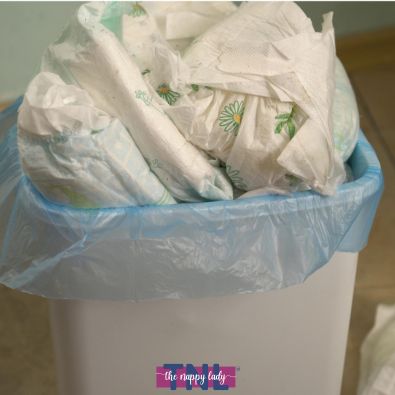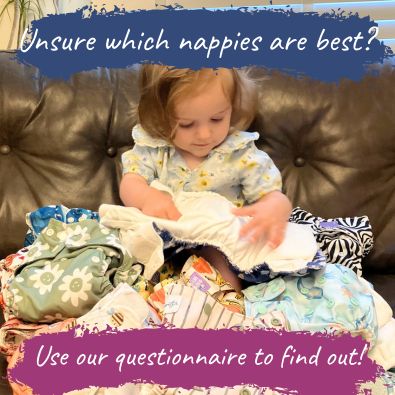Fallacies of Eco-Disposables

Many people choose not to use cloth nappies, but instead use so-called eco-disposables. When asked why – out of interest, not criticism, I hasten to add – they usually say it makes them feel better because they believe they are less damaging from a landfill point of view.
Sorry to disappoint, but that’s not the case at all. The term 'eco' can mean just about anything. From a supplier’s point of view, it roughly translates as “makes people feel better about the environment,” even when there is little basis in fact. Some eco disposables are so named because they are produced according to the most environmentally friendly production methods, like Moltex Oko nappies are. However, this makes no comment at all about their landfill implications. Actually, if you look at the Moltex packaging, the packaging for the nappies is degradable (whoopee!), but there is nothing especially degradable about the nappies themselves.
Other nappies, such as the Tushies, are chemically friendly, rather than landfill friendly. In fact, that company specifically makes no environmental claims at all. So, if you are buying eco disposables to reduce your landfill footprint, I’m afraid you’ve been misled. And let me confuse you even further, now. Some companies claim that Moltex nappies are compostable. I’m not even going to give you the website address of the Irish company which is worst for this. And I’ll tell you why.
I, as The Nappy Lady, have received two very distraught phone calls from parents (the dads, in both cases) who happily bought Moltex nappies for full time use, with the intention of composting them. This was their compromise, as they did not feel cloth nappy usage was practical for their situation. They followed the instructions on the Irish website to the letter on building their appropriate composting area. A few months later, they were on the phone to me, practically in tears. You see, it is all very well trying to compost the odd nappy – it does indeed work fine, and the superabsorbent gel doesn’t break down, but works in exactly the same way as those water-capturing granules for poor soils do (since that is exactly what it is, really). But a couple of nappies a week, or maybe even one a night is one thing.
But imagine how quickly a pile of 35 nappies a week builds up in a suburban city garden. Those of you who use disposables and see how they fill the bin know that that is quite a pile to be disposed of each week. You’d have to have a hell of a composting facility to deal with that. Actually, a major disposables manufacturer in the USA about 15 years ago did a feasibility study on composting their disposables (without an eco label in sight) and decided it was perfectly viable. But they quietly shelved the project, when the ugly questions of who was going to pay for it, how would people separate their diaper waste stream and – most importantly – did a company focused on single use disposable products really want to focus their customers’ minds on the problems of landfill raised their heads.
And what happened to my distressed callers? In both cases, they ended up having the health and safety people at their local council come round to dispose of their home made landfill sites. And that in itself was hugely distressing, given that the whole reason they had got into this situation was because they wanted to reduce landfill problems. Finally, I did contact the Irish website to ask them not to publish misleading information about composting of nappies on their website. They told me, firstly, that they have more space in Ireland to compost and secondly that people in Ireland obviously know more about composting that English people do.
Needless to say, they continue to disseminate nonsense, and deny all responsibility for any landfill problems arising. In any event, whatever goes into landfill, whether it is described as degradable or not, will stay there. UK landfill sites are deliberately managed to minimise degradation, because of the problems of excess methane production. So what goes in stays in, and in 5-10 years will be capped over with concrete anyway.
My own advice is this: if cloth nappies aren’t for you, use Moltex if you feel strongly about the environmental impact of the production process, or Tushies if you are concerned about the chemical impacts. And mainstream disposables if you like. You can always compost your food waste, instead.
This article was written back in the early 2000s, and over the past 21 years I've had many people claim I wrote it based on my vested interest in selling reusable nappies and therefore I was wrong. In the last few years the 'Blue Planet Effect' has been in full swing and thankfully now it's public knowledge that it's true disposables really don't break down no matter what the packaging claims. Have a read of the latest article from Which? magazine who looked at biodegradable nappies: "Why biodegradable nappies might not be as eco friendly as you think."
Read more: https://www.which.co.uk/news/2021/02/why-biodegradable-nappies-might-not-be-as-eco-friendly-as-you-think/ - Which?
